Haskell - Steel Harmony
Optimizing Steel Inventory at Haskell
[ Home | Case Studies | Haskell – Steel Harmony ]
01
The
Challenge
Haskell, a prominent design-build construction company in Jacksonville, FL, faced a costly issue: their steel yard held millions of dollars worth of unallocated steel inventory from projects affected by change orders or design modifications.
This untapped resource presented a clear opportunity for their structural engineers to incorporate these steel members during the design phase.
However, without direct access to inventory data, it was nearly impossible to optimize its use—resulting in unnecessary purchases and increased project timelines.
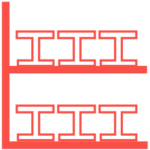
Unused unallocated steel taking up viable space

Disconnect with steel design and fabrication shop

Haskell Steel suffered the consequences
02
The Result
Through the implementation of Steel Harmony, Haskell engineers now have seamless access to real-time inventory data. They can:
- Replace costly or custom-designed steel members with readily available ones.
- Request inventory usage directly within Revit, streamlining approvals and integration.
- Automate updates in their Revit models, ensuring accurate construction documentation.
The results? Lower costs, reduced waste, and shorter project timelines—all while leveraging existing steel resources efficiently.

Removing unallocated steel from the steel shop

Engineers design a less expensive structural package if project allows

Haskell Steel gets selected for more Haskell Construction projects
03
Our Role and Process
Haskell’s Big Pitch internal competition sparked the initial idea: a Revit plugin to match modeled steel sections with available inventory.
From there, we refined the concept into a fully functional product by:
- Designing an intuitive UX/UI for engineers and stock administrators.
- Architecting a robust software solution deployed on the cloud.
- Developing a Revit addin, a connected web app, and backend integration.
Our solution bridges the gap between design models and Haskell’s steel shop, streamlining communication and inventory usage.
Define the UX/UI
Integrate requirements
Software Architecture
Develop Revit Add-in and Platform
04
The Solution
The Steel Harmony solution revolves around three key components: Revit, Web App and Power Fab.
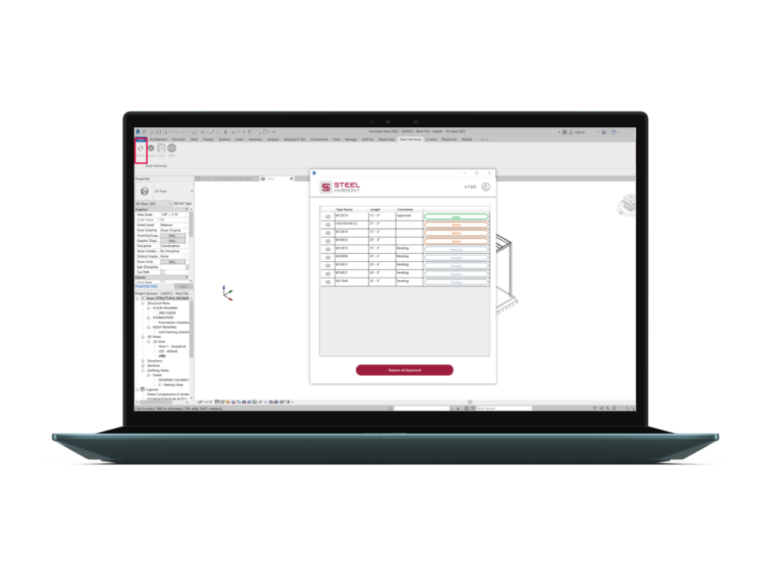



Revit
Design

Webapp
Admin
Powerfab
Warehouse
Revit Addin
This tool scans design models for steel sections, identifies potential inventory replacements, and categorizes them into two actionable lists:
- Unallocated inventory matches: Engineers can analyze and request replacements, which are automatically updated in Revit upon approval.
- High-cost sections with suggested alternatives: The addin recommends more practical options, enabling cost-saving decisions during design.
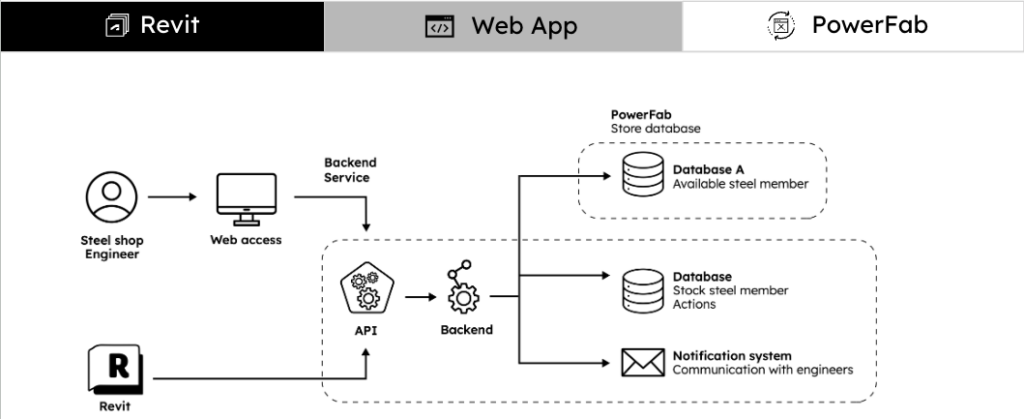
- Possible unallocated inventory steel match. If an unallocated piece meets the specific criteria, the engineer will review any matches and reanalyze the member to confirm if the unallocated shape will work in replacement of the original piece.


If the replacement works, they can submit a request to use it in their project with a single click.
High-cost sections with recommended replacements
This list would include any items with long lead times, uncommon shapes that are hard to reuse in the future if a project is terminated, or pieces hard to fabricate. The addin provides a recommended replacement so the engineer can see if it’s possible to replace the section.
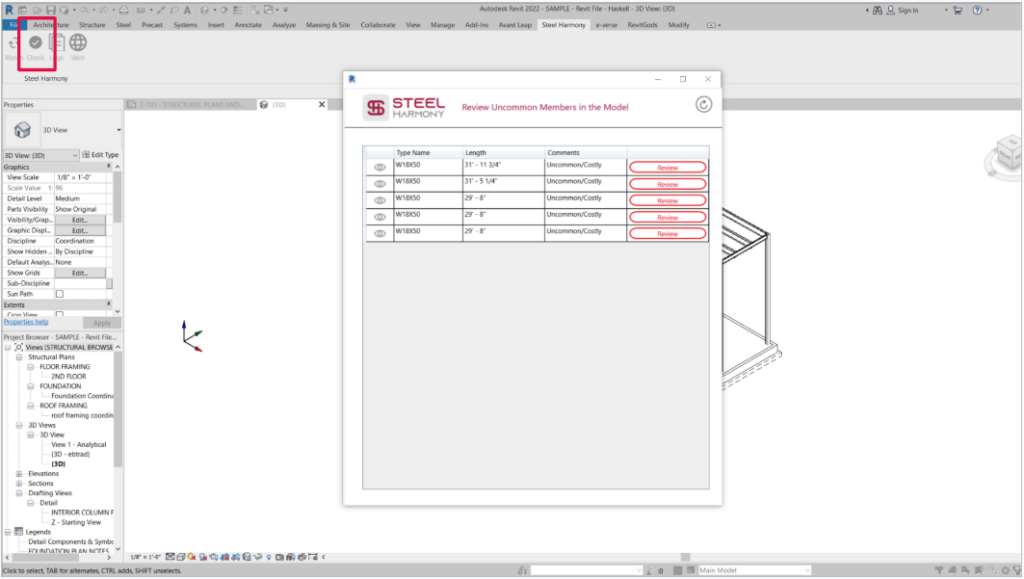
If the engineer is happy with the replacement, they can send a request to the steel shop.
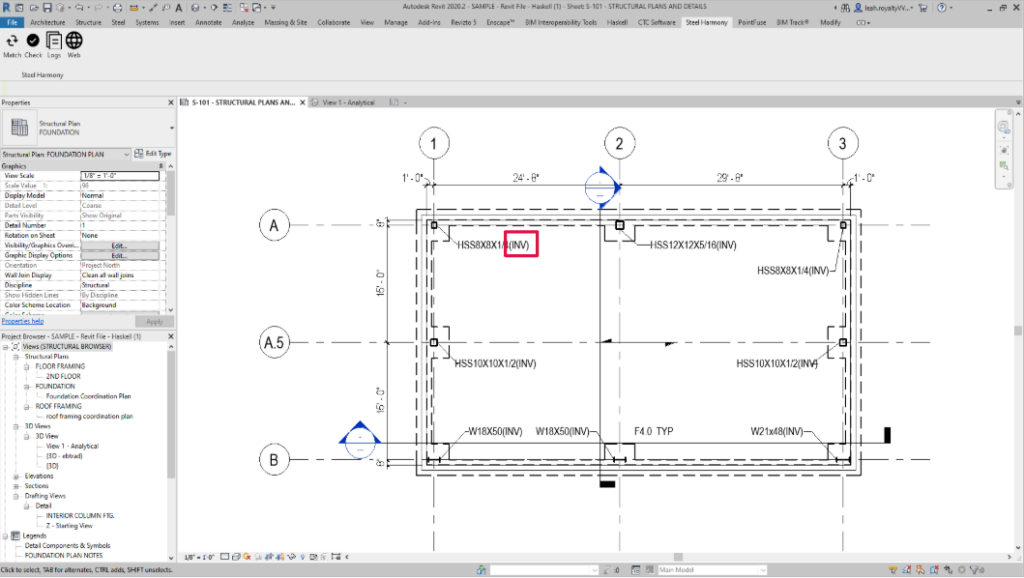
Replaced pieces are automatically marked with a tag, so construction documents reflect that it’s an existing inventory piece.
Web
application
Haskell’s stock administrators manage inventory and approvals through an easy-to-use web app, integrated with their PowerFab database. Key functionalities include:
- Approving or rejecting steel replacement requests.
- Managing uncommon steel shapes for future reference.
- Overseeing the entire unallocated steel inventory in real-time.
Let’s deep dive into an example:
Here, stock admins can approve or reject requests for existing members that come from any Haskell project:

They can also manage a list of uncommon members that will be checked for when any engineer starts an automatic review in their project:

Or also manage and view their existing unallocated inventory, connected to their PowerFab database:

05
Who's
the Client?

Haskell is a leader in the AEC industry, with expertise in architecture, engineering and construction.
Headquartered in Jacksonville, FL, they operate globally across the US, Latin America, and Asia Pacific.
Their innovative approach includes being early adopters of tilt-up concrete panels and embracing cutting-edge technologies in their processes.
A Few Words from Our Partner


